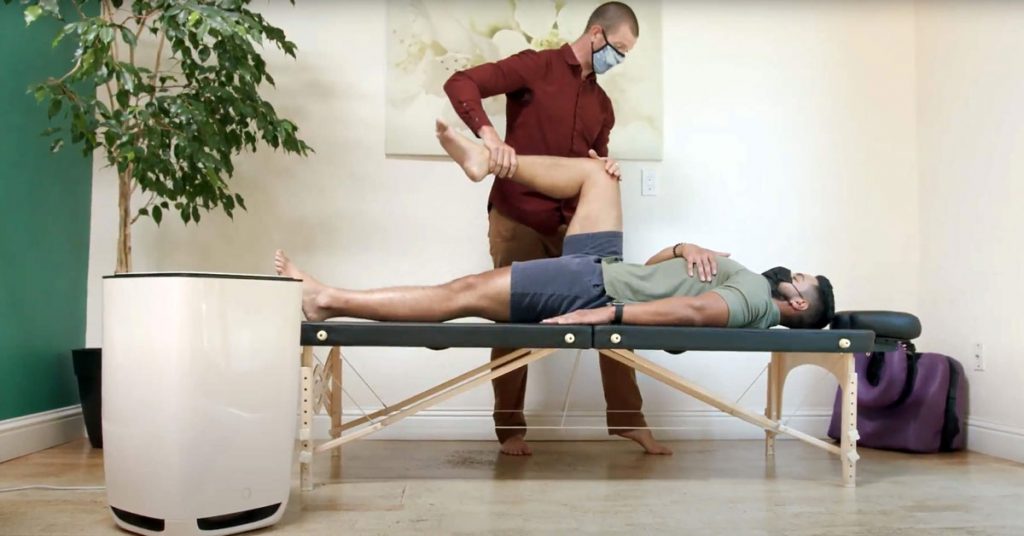Genuine HEPA (High-efficiency particulate air) filters are one of the gold standards for air filtration. HEPA-grade filters can be installed into air purifiers. HEPA-grade filters are capable of removing at least 99.97% of all particles like dust, mould, bacteria, pollen and even viruses like COVID-19.
The pandemic has encouraged all kinds of workplaces and venues to consider ventilation as part of their COVID safe plans. Many managers and business owners are still trying to figure out the best way to protect their business from airborne contaminants and learning that HEPA-filtration is the best way to go with many benefits.
HEPA-filter vs Ionic air purifiers.
It is important to stress that we are talking about certified HEPA-grade filters in this article. There is a big difference between Ionic air purifiers and HEPA-filters. Whilst additive technologies like ionising air purifiers are made attractive by distributors, they are not as effective at removing particles from the air as HEPA-grade purifiers.
There is an overwhelming consensus on the internet that air purifiers need to be run 24/7 but the most popular blog posts are focusing on the cheaper ionic air purifiers. HEPA-grade purifiers are most expensive to run, so how do we find the balance between effective and sustainable?
Should we run HEPA-filters all the time?
In short, it depends on your circumstances.
Imagine you are a hospital ward manager, with an influx of patients, staff and visitors constantly walking in and out of the ward. Hospitals are hotspots for infections and with patients often having diminished immunity, it is in the best interest of everybody for medical settings to be running HEPA-air filtration systems 24/7 to ensure consistent air turnover.
Meanwhile, if you were a teacher, it would be a different story. With limited resources and responsible for a class of presumably “healthy” children who only use the room during school hours, it would be more economical and appropriate to only run the HEPA-grade filtration during the day and switching it off at the end of the day.
There are some common themes to consider when thinking of the frequency to running your HEPA filters.
Things to consider when running HEPA filters
Here are some factors that you should take into account when setting up your HEPA filtering system.
Traffic
Ask yourself:
- How many people are coming in and out of the room?
- How crowded is the space?
If your room is a high-traffic or crowded area you may need to run the HEPA-filters for a longer period of time to properly filter all the air.
Risk of infection
It’s not just the number of people impacting the frequency of your HEPA-filter usage. What types of people are using the area? A “healthy” population of workers is at lower risk of airborne transmission than vulnerable people like the young, elderly and immunocompromised which medical grade are designed for.
If your space is full of presumably infectious or vulnerable people, it is best to run your HEPA-grade filter for longer.
Opening hours
What are the opening hours for the facility? Schools and most offices operate during business hours. If a place is not open 24/7, there may not be a need to keep the HEPA filter going twenty-four seven.
The environment and weather
Asides from COVID-19, HEPA-filters are also effective at reducing pollution, asthma and hayfever triggers. If you live in a city known for high pollution or it’s spring time and the pollen count in your area is high.
It may be best to run your HEPA-filter for longer to catch up with the increased load of pollutants due to the weather or environment.
Energy consumption
This is the ultimate driving factor, for running HEPA-filters. Whilst very effective, HEPA filters can be costly to run and result in increased electricity bills. To reduce running costs you can always try switching energy providers or running the filters during an off-peak period.
Key takeaways
HEPA-grade filters are able to remove 99.97% of all particles from the air but can be costly to run. Consider your risk profile and how frequently the room is used to help figure out the best amount of time to run your HEPA filter.
That way you can find the best balance between efficient and sustainable.
Westlab are able to offer consultative services to recommend placement and quantities of your filtration units.
Contact the team at sales@westlab.com.au today!
